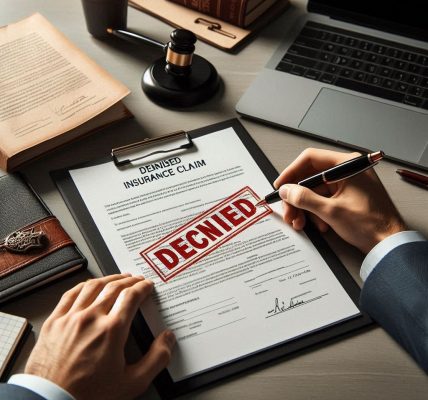When you file an insurance claim, you expect to receive a fair settlement that adequately covers your losses. However, insurance companies often offer settlements that are lower than expected or even deny claims outright. If you believe that your insurance claim settlement offer is unfair, you have the right to dispute it.
This DIY guide will walk you through the process of disputing an insurance claim settlement offer, providing you with actionable steps to maximize your payout while staying within legal boundaries.
1. Understanding Why Claims Are Underpaid or Denied
Before you initiate a dispute, it’s important to understand why insurers might undervalue your claim:
- Discrepancies in Damage Assessment: The insurance adjuster may have underestimated the cost of repairs or replacement.
- Policy Exclusions: Your policy may have specific exclusions that limit your coverage.
- Depreciation Calculations: Some insurers apply depreciation unfairly, reducing the payout.
- Insufficient Documentation: Lack of proper evidence, such as receipts, photographs, or expert evaluations, can lead to a low offer.
- Company Tactics: Some insurers use delay tactics, lowball offers, or legal jargon to discourage claimants from pursuing higher settlements.
Understanding these factors will help you build a strong case for your dispute.
2. Review Your Policy in Detail
Your insurance policy is the foundation of your dispute. Take the following steps to understand your coverage:
- Check Coverage Limits: Ensure your claim falls within the policy’s terms.
- Analyze Exclusions: Identify any clauses that the insurer might be citing to deny or reduce your claim.
- Review Deductibles: Your payout amount will be affected by deductibles.
- Compare Adjuster’s Report with Policy Terms: Ensure the insurer’s reasoning aligns with the contract you signed.
If needed, seek clarification from your insurance provider or an independent insurance expert.
3. Gather Strong Evidence
A solid dispute is based on evidence. Here’s how to strengthen your case:
- Get a Second Opinion: Hire an independent adjuster or contractor to assess the damages.
- Document Everything: Take detailed photographs, videos, and written statements from witnesses.
- Obtain Repair Estimates: Collect quotes from multiple licensed professionals.
- Medical Reports (for Health & Auto Claims): Provide thorough medical records if applicable.
- Proof of Ownership: If disputing a property or vehicle loss, submit receipts or previous appraisals.
4. Write a Formal Dispute Letter
A dispute letter is your official request for reconsideration. It should be professional, factual, and backed by evidence.
What to Include in Your Letter:
✔ Policy & Claim Details: Include policy number, claim number, and insured party details. ✔ Reason for Dispute: Clearly state why you believe the offer is unfair. ✔ Supporting Evidence: Attach all documents, reports, and estimates. ✔ Requested Action: Specify the revised amount you are seeking. ✔ Deadline for Response: Give the insurer a reasonable timeframe (e.g., 14–30 days) to respond. ✔ Professional Tone: Be firm but respectful to maintain a cooperative approach.
5. Communicate Effectively with the Insurer
Effective communication can improve your chances of a successful dispute.
- Stay Professional: Remain calm and polite, even if frustrated.
- Record All Conversations: Keep a log of emails, phone calls, and letters exchanged.
- Ask for Justifications: Request a written explanation for the settlement amount.
- Be Persistent: Follow up regularly to ensure your case is being reviewed.
6. Consider Mediation or Appraisal
If your dispute is not resolved through direct communication, consider these alternatives:
- Appraisal Process: Many policies have an appraisal clause allowing both parties to hire independent appraisers to determine a fair settlement.
- Mediation: A neutral third party can help negotiate an agreement between you and the insurer.
- State Insurance Department Complaint: If the insurer is acting in bad faith, file a complaint with your state’s insurance regulatory body.
7. Legal Action: When to Consider It
If all else fails, legal action may be necessary.
- Hire an Insurance Attorney: A specialized attorney can provide legal representation if your claim is wrongfully denied or undervalued.
- Bad Faith Lawsuit: If the insurer is intentionally delaying, misleading, or wrongfully denying a valid claim, you may have grounds for a lawsuit.
- Small Claims Court: For minor disputes, you can file a claim in small claims court without needing a lawyer.
8. Preventing Future Disputes
While disputes can be resolved, it’s best to avoid them altogether. Here’s how:
- Read Policies Before Purchasing: Understand what’s covered and excluded.
- Document Everything: Keep records of valuables, maintenance, and repairs.
- Prompt Reporting: File claims as soon as incidents occur.
- Regular Policy Reviews: Adjust coverage based on changes in property value or circumstances.
Final Thoughts
Disputing an insurance claim settlement offer can be challenging, but with the right approach, you can increase your chances of receiving fair compensation. Stay organized, provide strong evidence, and be persistent in your efforts.




